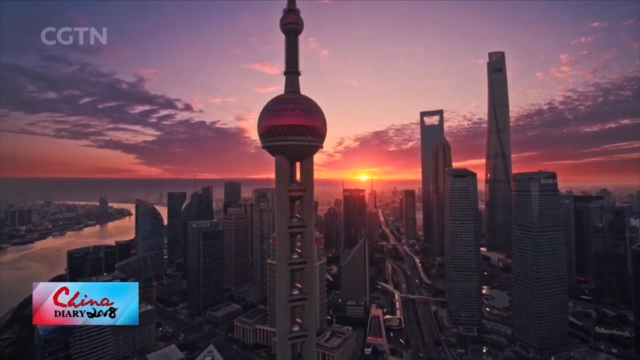
21:58, 30-Dec-2018
Looking Back at 2018: China pledges to further open up amid global challenges
Updated
21:28, 02-Jan-2019
02:58

The past 40 years witnessed sweeping changes across China following the country's historic move of Reform and Opening up. In 2018, China made moves to further open up amid rising protectionism in the West. CGTN's Han Peng takes a quick look at China's global trade in the past year.
Consumption levels hitting a new high. That was November 11th, marking China's annual shopping bonanza. E-commerce giant Alibaba alone secured a record 200 billion RMB, or nearly 30 billion US dollars in sales, in a mere 24 hours.
The shopping frenzy came right after China hosted its first import expo.
"To introduce foreign beef into Chinese cuisine."
More than 3-thousand foreign companies, big and small, gathered in Shanghai for the inaugural event.
XI JINPING CHINESE PRESIDENT "China's door of opening up will never be closed, and will only open even wider."
The 40 years of reform and opening up has turned China into an economic superpower, with its 1.3 billion people now eager to buy quality imported products, believing these types of purchases can elevate their lifestyle. But if you think these shopping miracles are only made by the urban middle class, think again.
Consumption in rural areas now grows twice as fast than that in cities.
HAN PENG XUBA VILLAGE, ANHUI PROVINCE "On the bumpy rural road, this kind of motor-tricycle is probably the most handy tool to carry these parcels to the homes of villagers."
But trade doesn't come without frictions.
China used to require foreign car companies to set up joint ventures with Chinese firms if they wanted to enter the Chinese market. But 2018 saw the first 100 percent foreign-owned car factory breaking ground in Shanghai, with Tesla making the historic move.
HUANG OU, DEPUTY DIRECTOR SHANGHAI MUNICIPAL COMMISSION OF ECONOMY & INFORMATION "This is a pilot project by Shanghai to reflect the central government's call for the removal of foreign equity limits in the automobile manufacturing industry."
A poor country rising into a world factory, now buying from the world like never before. Han Peng, CGTN, Shanghai.

SITEMAP
Copyright © 2018 CGTN. Beijing ICP prepared NO.16065310-3
Copyright © 2018 CGTN. Beijing ICP prepared NO.16065310-3